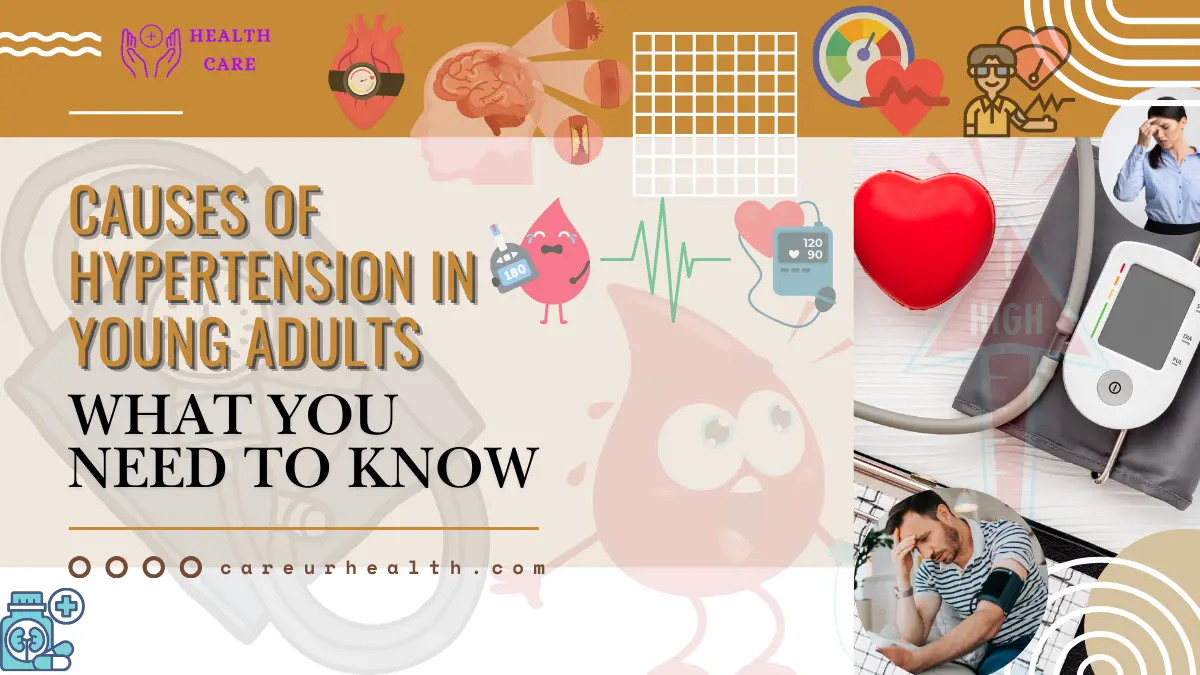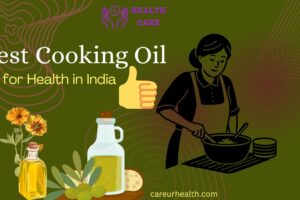Factors that influence blood pressure include age, stress levels, and dietary habits. High blood pressure, or hypertension, is no longer just a concern for older adults. Increasingly, young adults are being diagnosed with this condition, raising concerns about long-term health risks.
Understanding the etiopathogenesis of hypertension is crucial for developing effective treatments and preventive measures.
While factors like genetics and age play a role, lifestyle habits and environmental factors are significant contributors.
“Understanding the causes of hypertension in young adults can empower individuals to take preventive steps and improve their overall health.”
Key Takeaway: Preventing Hypertension in Young Adults
- Adopt a Healthy Diet: Focus on reducing sodium and increasing potassium-rich foods.
- Stay Physically Active: Aim for at least 150 minutes of moderate exercise weekly.
- Manage Stress Levels: Incorporate relaxation techniques and seek support when needed.
- Limit Harmful Substances: Reduce alcohol intake and avoid smoking.
- Regular Health Monitoring: Keep track of blood pressure levels and consult professionals as needed.
Various factors affecting BP include stress, diet, and physical activity levels.
Understanding Hypertension: What Is It?
Understanding the factors affecting BP can help in managing and preventing hypertension effectively. Hypertension occurs when the force of blood against artery walls is consistently too high. It is often termed the “silent killer” because it rarely presents symptoms until severe complications arise.
The primary causes of hypertension in young adults include stress, poor diet, and lack of exercise. Blood pressure is measured in two numbers: systolic and diastolic pressures.
Systemic hypertension is a chronic condition that affects blood pressure throughout the entire circulatory system. If the readings consistently exceed 120/80 mmHg, it could indicate elevated or high blood pressure.
Lifestyle choices are significant factors affecting BP, especially in young adults. Early detection and lifestyle changes can significantly reduce health risks.
Sedentary Lifestyles and Lack of Physical Activity
One of the most common causes of hypertension in young adults is a sedentary lifestyle.
Spending long hours sitting, whether at a desk or watching screens, reduces physical activity levels, weakening the cardiovascular system.
Identifying the causes of hypertension in young adults early can lead to better management strategies.
Regular exercise helps keep blood vessels flexible, reducing stress on the heart. Encouraging young adults to incorporate at least 30 minutes of exercise daily can make a profound difference.
Poor Dietary Habits and High Sodium Intake
Diet plays a crucial role in blood pressure regulation. Consuming foods high in sodium, such as processed snacks and fast foods, directly contributes to hypertension.
Additionally, diets low in potassium, a nutrient that helps balance sodium levels, can exacerbate the problem. Opting for a balanced diet rich in fruits, vegetables, and lean proteins can support heart health and prevent high blood pressure.
The Increasing Prevalence of Hypertension in Young Adults
Researchers continue to study the etiopathogenesis of hypertension to identify underlying mechanisms and potential therapeutic targets. Some medications can also be causes of secondary hypertension when used long-term.
Hypertension among young adults has become a serious health concern in recent years. Many individuals fail to recognize its early warning signs, which can lead to severe complications.
Medical studies highlight genetics as one of the causes of hypertension in young adults. This condition, once primarily associated with older individuals, is now impacting those in their 20s and 30s due to evolving lifestyles.
Recognizing the underlying causes and taking preventive measures early is critical to maintaining good health.

The Role of Poor Nutrition in Hypertension
Dietary habits are a major factor contributing to hypertension among young adults. Consuming foods high in sodium, sugars, and fats can increase blood pressure significantly.
Unfortunately, many people rely on fast foods and snacks, which lack essential nutrients. Understanding the causes of hypertension in young adults is crucial to prevent long-term health issues.
Transitioning to a balanced diet rich in vegetables, fruits, and proteins can lower the risk of developing this condition.
Regular hydration also plays a crucial role in maintaining proper circulation and heart health.
Family History and Genetics
Genetic predisposition plays a significant role in the likelihood of developing hypertension.Mild hypertension can often be managed with lifestyle changes such as a healthier diet and regular exercise.
If immediate family members have experienced this condition, the chances of inheriting it increase substantially.
Early detection of systemic hypertension is crucial to prevent complications like heart disease and stroke. Regular health screenings and a proactive approach can help identify potential risks and mitigate them before complications arise.
Environmental and External Factors
Living in urban areas exposes individuals to several environmental stressors that contribute to hypertension.
Pollution, noise, and long commutes can elevate stress and fatigue levels, weakening the body over time.
Additionally, exposure to chemicals in air or water can cause oxidative stress, which impacts vascular and heart health. Simple changes, such as air purifiers or engaging in outdoor activities in cleaner spaces, can reduce exposure significantly.
The Importance of Regular Sleep
Sleep deprivation disrupts the body’s natural restorative processes and is closely linked to hypertension.
The etiopathogenesis of hypertension involves a complex interplay of genetic, environmental, and lifestyle factors. Poor sleep hygiene, irregular sleeping patterns, and excessive screen time affect the quality of rest.
Ensuring a consistent schedule of 7–9 hours of sleep allows the body to recover and maintain a healthy blood pressure range. Creating a peaceful sleep environment free of distractions can greatly enhance overall cardiovascular health.
Stress and Mental Health Factors
Chronic stress is a significant contributor to hypertension. The constant release of stress hormones like cortisol and adrenaline can cause blood vessels to narrow, increasing pressure.
Factors such as demanding work environments, financial challenges, and personal pressures make stress unavoidable for many young adults.
Stress is a common trigger for hypertensive disorders in young adults. Learning stress management techniques, such as meditation and mindfulness, is vital.
Excessive Alcohol Consumption
Alcohol, when consumed in excess, raises blood pressure by impacting the liver and kidneys and reducing vascular flexibility. While moderate alcohol consumption may not harm, binge drinking among young adults poses significant risks.
Chronic conditions like diabetes and kidney disease are critical factors that influence blood pressure over time.
The causes of secondary hypertension can be linked to underlying medical conditions like kidney disease. Limiting alcohol intake and opting for healthier beverages can help maintain optimal blood pressure levels.
Smoking and Exposure to Secondhand Smoke
Smoking is a leading cause of hypertension. The chemicals in tobacco damage artery walls, reducing their elasticity and increasing pressure.
Even exposure to secondhand smoke can have similar effects. Encouraging young adults to quit smoking or avoid environments with heavy smoke can protect their cardiovascular health.
Hypertension, commonly referred to as high blood pressure, is a growing concern among young adults. Once considered an issue predominantly affecting older individuals, this condition is now increasingly prevalent in the younger demographic.
Understanding its causes is essential for prevention and management. This comprehensive article explores the multifaceted reasons behind hypertension in young adults and provides actionable insights.
The Impact of Sedentary Lifestyles on Blood Pressure
The modern lifestyle has seen a significant shift toward sedentary activities. Many young adults spend prolonged hours sitting at desks, commuting, or engaging in screen time.
Obesity and lack of exercise are key factors that influence blood pressure negatively. Lack of physical activity contributes to weight gain, which in turn increases the strain on the cardiovascular system.
Also, excessive gas buildup can contribute to increased blood pressure by putting strain on the cardiovascular system.
Over time, this cycle leads to elevated blood pressure levels, making hypertension more likely.
A hypertensive disorder is a condition characterized by consistently high blood pressure. Incorporating even modest amounts of physical activity, such as brisk walking or stretching exercises, can drastically reduce these risks.
The Role of Unhealthy Dietary Habits
Diet plays a crucial role in maintaining blood pressure. Fast foods, processed snacks, and sugary beverages are common dietary staples for many young adults. These foods are high in sodium, trans fats, and sugars, which contribute to hypertension.
High sodium levels cause the body to retain water, increasing blood volume and pressure. Transitioning to a balanced diet rich in fruits, vegetables, lean proteins, and whole grains can promote better cardiovascular health.
Hypertensive disorders can increase the risk of heart disease and stroke. Chronic stress is a significant contributor to hypertension in young adults. Whether it’s academic pressure, career challenges, or financial strain, these stressors take a toll on the body.
Stress causes the release of hormones like cortisol and adrenaline, which temporarily spike blood pressure. If stress becomes persistent, these spikes can lead to long-term hypertension.
Adopting stress management techniques, such as mindfulness, yoga, or even hobbies, can provide much-needed relief.
Sleep Deprivation: A Hidden Culprit
Sleep deprivation is often overlooked as a cause of hypertension, but it plays a critical role in heart health.
Young adults frequently sacrifice sleep due to academic, social, or professional commitments. Inadequate sleep disrupts the body’s natural balance and elevates stress hormone levels, leading to high blood pressure.
Maintaining a consistent sleep schedule and aiming for 7–9 hours of quality sleep each night can greatly reduce the risk.
Substance Use and Its Effect on Blood Pressure
The use of substances like alcohol, tobacco, and recreational drugs has a direct impact on blood pressure. Nicotine in cigarettes, for instance, causes temporary spikes in blood pressure and damages blood vessels over time.
Similarly, excessive alcohol consumption can weaken the heart and affect its ability to pump efficiently.
Avoiding these substances or seeking support to quit can significantly improve cardiovascular health.
The Influence of Genetics on Hypertension
Genetic predisposition is another major factor in the development of hypertension among young adults. Individuals with a family history of high blood pressure are more likely to develop the condition themselves.
While genetics cannot be altered, being aware of one’s family medical history allows for early monitoring and intervention, such as regular blood pressure checks and adopting preventive lifestyle changes.
Hormonal Imbalances and Blood Pressure
Hormonal disorders like polycystic ovary syndrome (PCOS), hyperthyroidism, and adrenal gland disorders are known to contribute to hypertension. These imbalances can cause the body to retain fluids or narrow blood vessels, both of which increase blood pressure.
Regular health check-ups and early diagnosis of hormonal issues can help manage their effects on cardiovascular health.
Environmental Factors and Their Role
Pollution, exposure to toxins, and urban noise are environmental factors that can contribute to hypertension. Air pollution, for instance, causes oxidative stress, which damages blood vessels and elevates blood pressure.
Identifying the causes of secondary hypertension is crucial for effective treatment. Environmental factors, such as pollution, are also significant causes of hypertension in young adults.
Similarly, urban noise pollution increases stress levels and disrupts sleep, both of which are risk factors for hypertension. Advocating for cleaner environments and practicing self-care to minimize exposure are essential steps in managing these risks.
Technology and Sedentary Screen Time
The determinants of blood pressure include both genetic and lifestyle factors. The pervasive use of technology has led to an increase in sedentary behaviors among young adults.
Hours spent on phones, laptops, or gaming consoles limit physical activity and can lead to weight gain and stress, both contributors to hypertension.
Setting daily screen-time limits and incorporating active breaks can help combat the negative effects of excessive technology use.
The increasing prevalence of obesity is among the top causes of hypertension in young adults today.
Carrying excess weight puts additional strain on the heart, forcing it to work harder to pump blood. This increased workload contributes to higher blood pressure. Young adults facing weight management challenges are more likely to develop hypertension.
Understanding the determinants of blood pressure can help manage hypertension more effectively. Adopting a balanced lifestyle with regular physical activity and healthy eating habits can alleviate this risk.
The Need for Awareness and Action
Hypertension in young adults is a pressing issue that demands attention. By understanding its multifaceted causes—from sedentary lifestyles and poor diets to stress and environmental factors—individuals can take proactive steps toward prevention.
Small lifestyle changes, such as eating healthier, exercising regularly, and managing stress, can make a significant difference. Also, the concept of permissive hypertension is often used in critical care to balance risks and benefits in managing blood pressure.
Proper management of a hypertensive disorder involves lifestyle changes and medication. Public health initiatives and awareness campaigns can also play a vital role in addressing this growing concern.
Manipal Hospitals
Conclusion
Hypertension in young adults is a growing concern but can often be prevented or managed with the right approach.
By understanding the causes and making necessary lifestyle changes, young individuals can significantly reduce the risks associated with high blood pressure. Building awareness and fostering healthier habits are key to ensuring long-term well-being.
FAQs
- What are the early signs of hypertension?
Hypertension is often symptomless, but severe cases may cause headaches or dizziness. - Can young adults reverse hypertension?
Yes, lifestyle changes such as diet and exercise can lower blood pressure levels.










